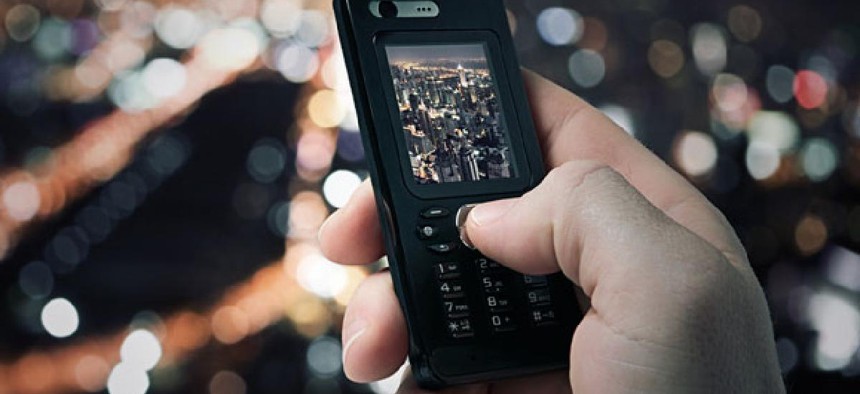
Ersler Dmitry/Shutterstock.com
Agencies might have to obliterate private photos on devices that go AWOL
New technology will allow users to preserve personal data on missing tablets and smartphones.
Employees at agencies such as Customs and Border Protection who convince their bosses to let them work on their own smartphones and tablets might have to allow security managers to install special software that erases stored information -- both business and personal -- if their smartphone goes missing.
The bring-your-own-device trend carries the potential benefit of increased productivity along with the risk of data loss. And it’s not just agencies that are worried about losing data. Employees stand to lose cherished family photos and other personal records if their devices are compromised in a way that prompts agencies to take pre-emptive action to protect government data. CBP and other agencies have expressed interest in letting select staff use personal phones, tablets and other electronics on the condition that hard drive wiping software goes into the gadget to destroy sensitive information if misplaced, according to vendors developing the BYOD security technology. Government data also can be subjected to periodic scrubbing when an employee-owned phone is connected to the agency’s network.
“You can do it remotely or we can install something on the device so that if certain requirements aren’t met, it will automatically wipe the entire system. That does mean we could potentially be erasing their personal stuff too,” said Nathan Jones, vice president for WhiteCanyon Software, which already supplies many federal employees with similar tech for their personal laptops. “That is definitely the tricky part of the BYOD [issue], because you are kind of mingling the two.”
In a couple of months, the company plans to offer its customers at CBP, the Air Force and the Environmental Protection Agency an application for smartphone hard drives that has the ability to mark only work files for destruction.
Teleworkers at those agencies already rely on this segregating software for home PCs, the primitive version of BYOD, Jones said. The technology for personal laptops and desktops comes with a feature that clears only business files while leaving personal folders untouched. “So long as they are abiding by the rules that say, ‘Don’t store anything here; this is for your work stuff’ you’re perfectly fine,” he said.
Also, an agency can choose to set a high threshold for self-destruction so that essentially only abnormal usage by a stranger will trigger the eraser. An outsider, for instance, would have to punch in the wrong password five times or not use the device for nine days to prompt erasure.
“The wiping is there to happen when it’s obvious it’s fallen into the wrong hands or been lost,” Jones said.







